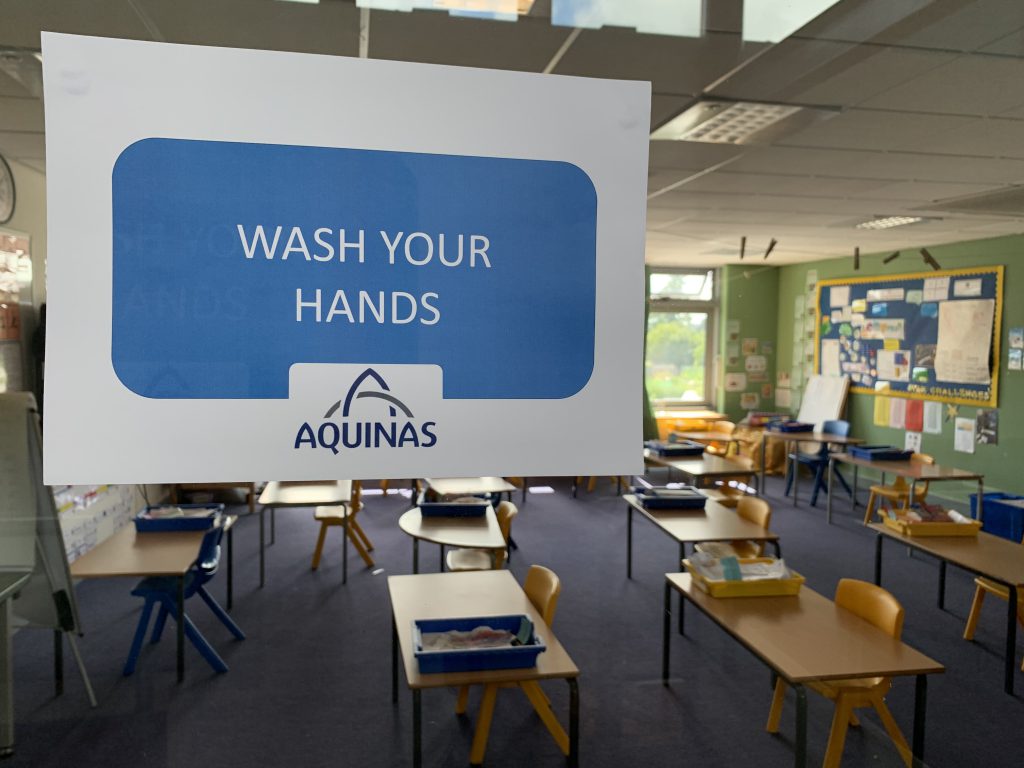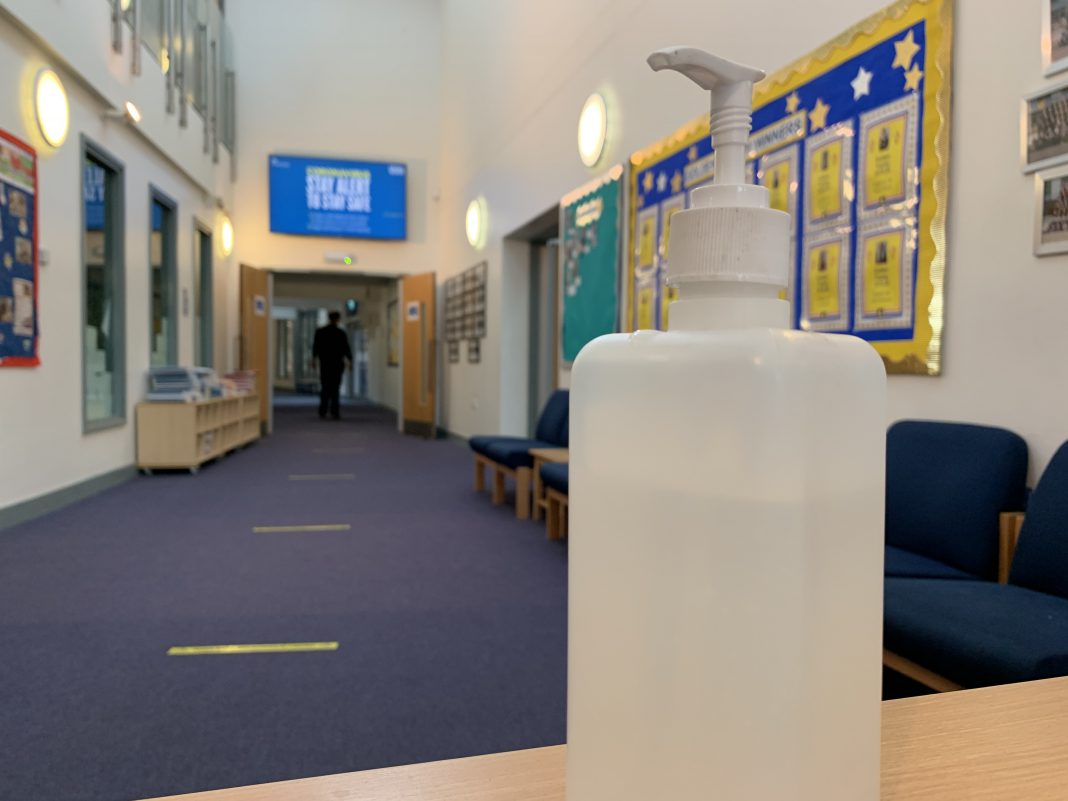As any headteacher will tell you, closing their school is one of the toughest decisions they ever have to make; however, this is usually said in the context of severe weather and not a global pandemic.
So news on March 18, that all schools were to close as coronavirus made its grim presence known, signalled the start of what would be an extraordinarily testing time for all of us – children, families and teachers.
In truth, the decision wasn’t a great surprise as families had understandably started to withdraw their children in the preceding days. What was more unexpected was the announcement schools would remain open to provide childcare for key workers and priority pupils.
Whilst the number fluctuated between 5 and 25 children, we remained open throughout term time, holidays and bank holidays until the end of May as well as being a local hub for any key worker needing emergency childcare should a local spike occur. An achievement only made possible by the dedication of my colleagues to keeping the school open in the most challenging of times.
For the majority of our children who were now at home, ‘remote study’ would allow for their continued education. However, with limited infrastructure in place and only a skeleton staff on site, much of what we achieved was done from scratch, from the confines of my colleagues’ homes.

Most children have engaged with our online offer despite many families being restricted by the technology available to them – most often a mobile phone. To assist with this, we have loaned over fifty tablets and increased the amount of printed materials being sent out each week. Our aim has been to engage as many children as we can for as long as we can and minimise the inequalities between them, knowing we will be faced with the stark issue of disadvantage in our classrooms when we return.
This crisis has reminded us all that schools not only deliver education but myriad other services whether feeding children on a daily basis, offering a safe and stable environment, or providing access to resources many homes simply cannot afford. All my colleagues have worked incredibly hard to make the situation more bearable for children whilst juggling commitments to their own families in the background.
“Keeping in touch is vital”
A significant part of our work has been ‘keeping in touch’ with our children and families with regular telephone calls to see how they are coping, offering support or signposting additional services such as those relating to mental health and bereavement. Regrettably, such help will still be needed for some time yet.
Our families have coped admirably: they have been kind, caring and supportive of one another. Home-schooling is not easy especially when there is no option. Having said that, our families have responded in remarkably creative and inspiring ways. Restrictions have significantly curtailed our extended provision, most clearly seen in our strict opening and closing times to allow for enhanced cleaning and the absence of breakfast and after-school clubs.
No doubt these things will return, but the process of risk assessing all aspects of school life is one that requires great care and diligence for the health, safety and welfare of all concerned.
With a third of our children eligible for free school meals, many families have faced significant financial pressure during lockdown. Initially, our trust – with superb support from Stephen Jempson – paid for interim vouchers whilst the national scheme was established.
Families only “just about managing”
Not without some delays beyond our control, families have been able to access supermarket vouchers to assist with their weekly shop – a scheme that has now been extended to the end of the summer holiday.
In extreme cases we have been able to provide additional support though it would be fair to say we have seen an explosion in the number of families who would describe themselves as “just about managing” a trend that may continue in the coming months.
No week has been the same as new guidance has eased the lockdown. From June 1 we have been able to reopen the primary school with a particular focus on the nursery, year 1 and those about to transfer to secondary in year 6, whilst the college has been restricted to tutoring-style sessions with year 10.
Minimising the impact on life chances
Undoubtedly it has been easier to return children to the primary, with one-in-three families now choosing to come back this side of the summer taking up most of the places available. About half of those students eligible to attend the college have chosen to do so. Re-engaging children will be a vital part of our work going forward, if we are to minimise the impact on their education and in turn their life chances.
Both schools are now working towards full re-opening in September with further guidance due to be released last week. Opening to all youngsters is no small feat with anticipated considerations being staggered arrival and departure times, separation of year groups or classes into ‘bubbles’, new arrangements for breaks and lunch, as well as revisions to the curriculum and examination arrangements for next year to name but a few. Who knew that when a school was closed there would be more work than when it was open?
Bringing back a sense of certainty
Despite this we approach the task with optimism – our focus has to be on getting youngsters safely back into class whether they are starting school for the first time, returning to their studies, transferring from primary, or preparing for further education. Given the last few months of uncertainty, it is incumbent upon us to swiftly bring about a sense of certainty regarding the future for our young people.
It is said that a crisis brings people together – the paradox of coronavirus being it requires us to keep apart. Nevertheless, I feel our community is as strong as ever – the spirit and resilience we have seen in the past few months will undoubtedly serve our young people well as they face the challenges that lie ahead.
As a profession we must work hard to ensure no child is unduly disadvantaged by all that we have been through, and that despite the world being somewhat altered, our young people feel no less a part of it. As always, we remain in your service.
Image Credits: Rye College .




Thanks to Barry Blakelock for the full and helpful discussion raising awareness of the current issues at Rye College and how they are being dealt with: a good example of how to build trust and support within our community in these difficult times.
Congratulations to Barry Blakelock and his team for working so hard in the background during the last few difficult months in order to serve the needs of the children in their charge and their families! The Rye community is blessed to have such conscientious and committed people providing for the educational needs of our children. They deserve our acclaim and support.